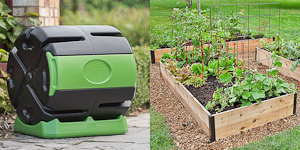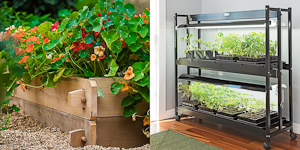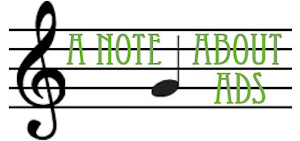- Home
- Organic Vegetable Garden
- Benefits of Organic Gardening
Top 10 Benefits of Organic Gardening
There are so many benefits of organic gardening! It's an activity which benefits the gardener, the earth, and the many animals and plants that make up the garden. But to keep from writing a book, I'm just going to describe the top ten:
Benefits of Organic Gardening - #1:
It produces the most healthful vegetables in the world.
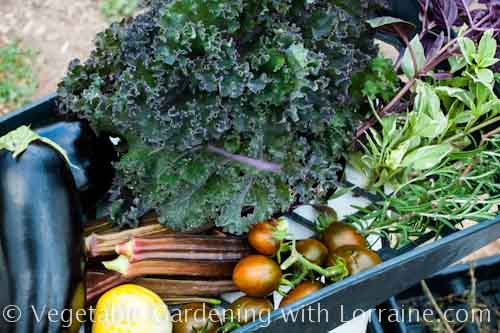
The most important of all the benefits of organic gardening is that vegetables grown on the rich, high-compost, well-mineralized soil of an organic garden are more vibrant, higher in antioxidants, much tastier and better for you than chemically-grown or genetically-modified vegetables. (Don't forget the old adage, "you are what you eat".)
Benefits of Organic Gardening - #2:
It's truly sustainable (forever).
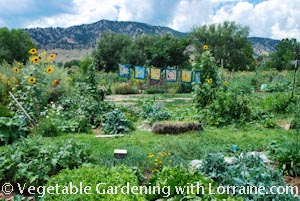 The Benefits of Organic Gardening
Extend to the Whole Community
The Benefits of Organic Gardening
Extend to the Whole CommunityThere
are pesticide-industry funded studies that appear to show no benefits
of organic gardening over chemically-grown, but it’s a fact that
nitrate fertilizers kill earthworms, seriously damage natural soil
ecology, show up as cell-damaging nitrates in food, and are terribly
resource-intensive to manufacture. Do a taste test for yourself: next
August, bite into a commercially-grown non-organic tomato from the
store, and then bite into one you grew in your own organic vegetable
garden. Your taste buds and your body will know the difference!
There are places in China where people have been growing food organically in the same beds for 4,000 years, and in Europe, for 2,000 (See Farmers of Forty Centuries by FH King). The land there is as fertile today as it was then, because all manures and crop wastes have been carefully composted and given back to the land, continuously.
Chemical fertilizers and pesticides are extremely energy-intensive to manufacture, contributing significantly to greenhouse gasses. And then they must be trucked to their destination, practices which are unsustainable. (And just think: if you were to apply chemical fertilizers and pesticides to the same piece of land for 4,000 years, the land would be sterile and dead forevermore!) We are beginning to understand this better now, and many farmers are re-learning sustainable, organic, and regenerative ways of growing food.
Benefits of Organic Gardening - #3:
It's inexpensive and self-regenerating (if you compost).
Once you have initially balanced your soil, homegrown produce is cheaper than storebought, especially if you save your own seed. Compost is free to make, and after your first few years of remineralizing your soil, your only expenses will be soil tests and minor mineral adjustments.
Benefits of Organic Gardening - #4:
Soil health is maintained and improved.
In 1945 a man named Albert Howard wrote a book entitled The Soil and Health, which is still relevant today: healthy soil gives rise to healthy plants, which give rise to healthy people. Most of us think of the soil as tiny bits of dead rock, but it’s much more than that. A teaspoon of healthy soil contains:
- 20 million - 2 billion beneficial bacteria
- 40 miles of fungal hyphae
- 100-100,000 protozoa
- 5-500 beneficial nematodes
- plus microarthropods, millipedes, centipedes and earthworms
Chemically-managed agricultural soils contain a fraction of these numbers.
Why
is this important? Each of those species has a part to play in the
natural cycling of nutrients and minerals from unusable forms into
life-usable forms, and back again. When these organisms are destroyed
through the use of chemical fertilizers and inattention to compost, the
plants become dependent on the addition of artificial
fertilizers, because the natural system no longer works. It's kind of
like trying to survive on vitamin pills.
Benefits of Organic Gardening - #5:
It does not pollute the environment.
Pollution from chemical fertilizer and pesticide manufacturing, as well as from field runoff, is now creating serious problems all over the world. Growing produce organically does not contribute to this pollution. It is also becoming apparent that the BEST place to sequester carbon is the soil. This implies that regenerative agriculture has the potential to reverse global warming...
Benefits of Organic Gardening - #6:
Organic vegetables are free of poisons.
One of the best benefits of organic gardening is that
organically-grown food has no cancer-causing pesticide residues or
unnatural genetic patterns. Pesticides do not completely wash off
produce. Every woman in the US still has traces of DDT in her breasts,
even though it was banned here in 1972. But many other pesticides have
been developed to take its place, including the new “systemic” ones.
Systemic pesticides are applied to the soil and are taken up by plant roots to become part of the plant itself, in sufficient dosage to kill the insects that chew on the plant... the same poisonous plant that we then eat. Studies are now pointing to this as cause of the honeybee die off. Organically-grown food not only avoids all these problems, but is much tastier and more nutritious.
And Roundup. That's a whole 'nother story... For now, suffice it to say that you should not use, breathe or eat Roundup in any dose, ever. And switching to an all-organic diet can allow your body to clear this ubiquitous carcinogen out of itself.
Benefits of Organic Gardening - #7:
It's local, in every way possible.
In every sense of the word, homegrown organic produce is as “local” as you can get. Properly-made homegrown compost is local too, and keeps the cycle of life close to home and sustainable indefinitely.
Benefit of Organic Gardening - #8:
It enlivens our connection to the earth.
This might sound kind of woo-woo to some, but we are biological beings living in a biological ecosystem, whether we understand it or not. When we become conscious of where we fit in, and begin choosing to participate in a symbiotic way with the soil and plants, something very earthy, primal, fulfilling and healing starts to happen. Try it and have the experience - it’s one of those things that doesn’t go into words very well. And being out in the garden builds strength and health, without going to the gym!
Benefits of Organic Gardening #9:
We can be assured we are not eating GMOs.
Genetically modified organisms (GMOs) are not just hybridized varieties of plants that have been bred to have certain characteristics. They are organisms that have had the most fundamental blueprint of life - DNA - mixed up between species that could never in a million years combine in nature.
Bacterial DNA is implanted into corn, fish DNA is implanted into tomatoes, spider DNA is implanted into goats, etc. This is done, for example, to make corn toxic to insects, or soybeans resistant to herbicides, or goat's milk full of spider silk. Our bodies are not adapted to ingest these mixed-up “foods”, and there have been several near-disasters with human health where serious problems were averted at the last minute before these engineered "foods" were released for mass consumption. Organic seeds cannot, by law, be GMOs.
Benefits of Organic Gardening #10:
Organic gardening benefits the larger ecosystem.
A healthy organic garden is by nature a diverse place, filled not only with vegetables, but flowers, birds, insects, amphibians, bees and butterflies. It is a safe harbor for living things, and is in balance with nature.
Help share the skills and spread the joy
of organic, nutrient-dense vegetable gardening, and please...
~ Like us on Facebook ~
Thank you... and have fun in your garden!
Affiliate Disclaimer
This website contains affiliate links to a few quality products I can genuinely recommend. I am here to serve you, not to sell you, and I do not write reviews for income or recommend anything I would not use myself. If you make a purchase using an affiliate link here, I may earn a commission but this will not affect your price. My participation in these programs allows me to earn money that helps support this site. If you have comments, questions or concerns about the affiliate or advertising programs, please Contact Me.Contact Us Page
